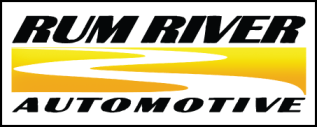How Do You Know When To Replace The Radiator?
If you haven’t yet had a radiator service following summer’s hot temperatures, it not too late! Don’t let your car leave you stranded on the side of the road with an overheating engine and steam coming from under the hood in wintry weather and harsh road conditions.
Just what is the purpose of the radiator, you wonder? To put it simply, the job of the radiator is to keep the engine from overheating. As you know, the engine produces heat while it is running. The coolant circulating through the engine absorbs this heat, then passes it through the radiator to be cooled off. This same coolant is then circulated back to the engine where the cycle starts again. As the major component of the cooling system, it is important that you keep the radiator in good working condition with regular radiator service.
So how do you know when to replace the radiator? Schedule an inspection by a certified mechanic if you notice any of the signs below:
- Leaking Coolant: You may notice a puddle of coolant (it could be green, pink, or orange) on the garage floor under your vehicle. You may also notice a sweet syrupy smell. And you have noticed that is having to refill the coolant tank more than usual. Ask your mechanic to perform a pressure test to determine if the leak is from the radiator unit itself, or from a crack in one of the hoses.
- Overheating Warning Light: If the coolant level drops too low, a low coolant light will come on and you will see the temperature gauge rising, indicating that your engine is overheating. If your engine starts to overheat, pull over immediately and call a tow truck to prevent damage to your engine.
- Sludge in the Radiator: As the radiator starts to go bad, the coolant will start to turn a rusty or oil color (it should be green, yellow or red) from contaminants. If not flushed out periodically, this dirty coolant turns into sludge and cannot flow properly to cool the engine efficiently. You may end up with extensive damage to the engine and transmission caused by overheating.
Remember: Be sure to use the services of a licensed and certified radiator repair technician if it becomes necessary to replace your radiator.
Wondering how do you know when to replace the radiator? Contact our ASE Certified Technicians at Rum River Automotive for more information about radiator service and to schedule an appointment. Since 1997, our auto shop has served vehicle owners in Princeton, MN, and in the surrounding areas of Milaca, MN, and Zimmerman, MN.

If you haven’t yet had a radiator service following summer’s hot temperatures, it not too late! Don’t let your car leave you stranded on the side of the road with an overheating engine and steam coming from under the hood in wintry weather and harsh road conditions.
Just what is the purpose of the radiator, you wonder? To put it simply, the job of the radiator is to keep the engine from overheating. As you know, the engine produces heat while it is running. The coolant circulating through the engine absorbs this heat, then passes it through the radiator to be cooled off. This same coolant is then circulated back to the engine where the cycle starts again. As the major component of the cooling system, it is important that you keep the radiator in good working condition with regular radiator service.
So how do you know when to replace the radiator? Schedule an inspection by a certified mechanic if you notice any of the signs below:
- Leaking Coolant: You may notice a puddle of coolant (it could be green, pink, or orange) on the garage floor under your vehicle. You may also notice a sweet syrupy smell. And you have noticed that is having to refill the coolant tank more than usual. Ask your mechanic to perform a pressure test to determine if the leak is from the radiator unit itself, or from a crack in one of the hoses.
- Overheating Warning Light: If the coolant level drops too low, a low coolant light will come on and you will see the temperature gauge rising, indicating that your engine is overheating. If your engine starts to overheat, pull over immediately and call a tow truck to prevent damage to your engine.
- Sludge in the Radiator: As the radiator starts to go bad, the coolant will start to turn a rusty or oil color (it should be green, yellow or red) from contaminants. If not flushed out periodically, this dirty coolant turns into sludge and cannot flow properly to cool the engine efficiently. You may end up with extensive damage to the engine and transmission caused by overheating.
Remember: Be sure to use the services of a licensed and certified radiator repair technician if it becomes necessary to replace your radiator.
Wondering how do you know when to replace the radiator? Contact our ASE Certified Technicians at Rum River Automotive for more information about radiator service and to schedule an appointment. Since 1997, our auto shop has served vehicle owners in Princeton, MN, and in the surrounding areas of Milaca, MN, and Zimmerman, MN.



